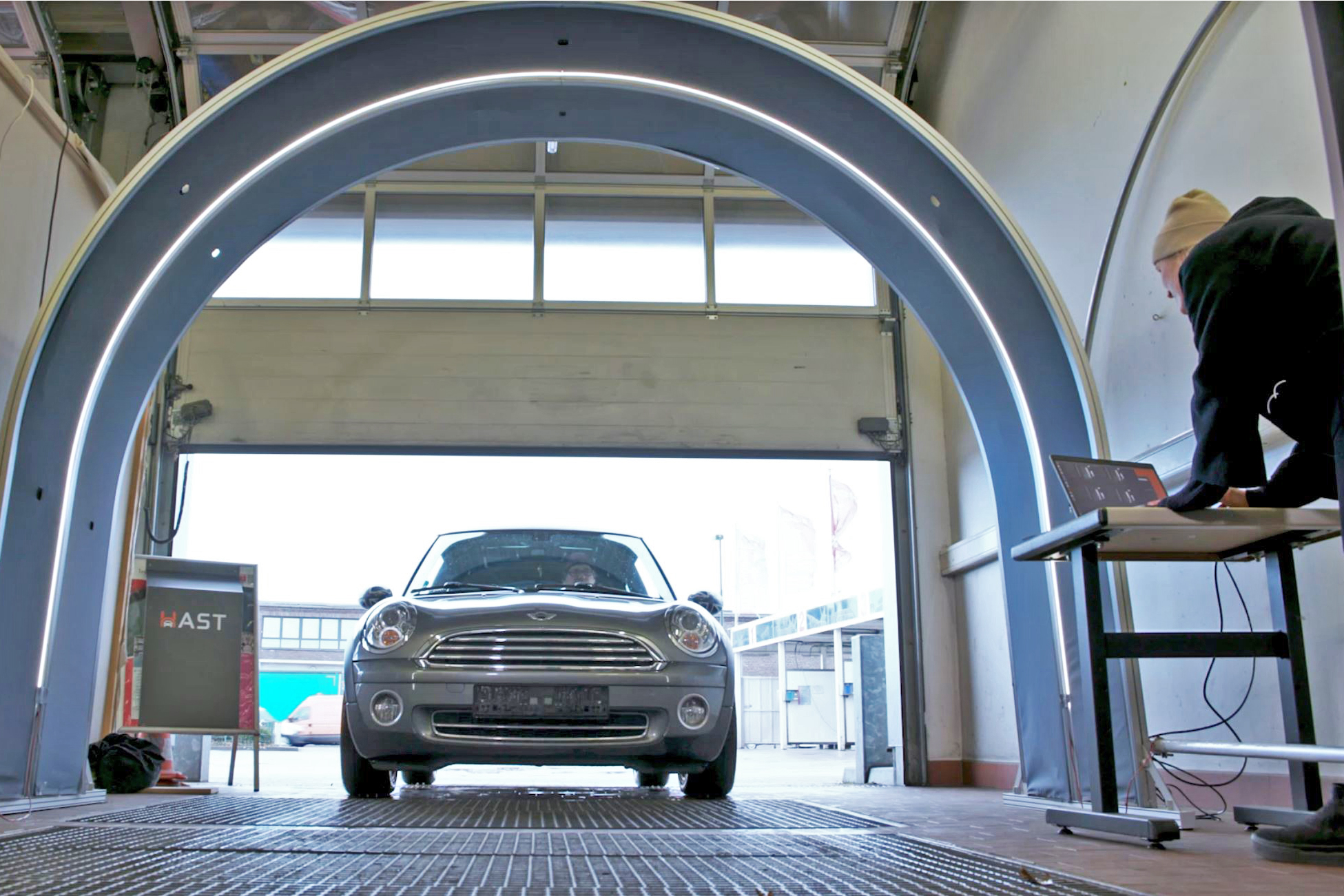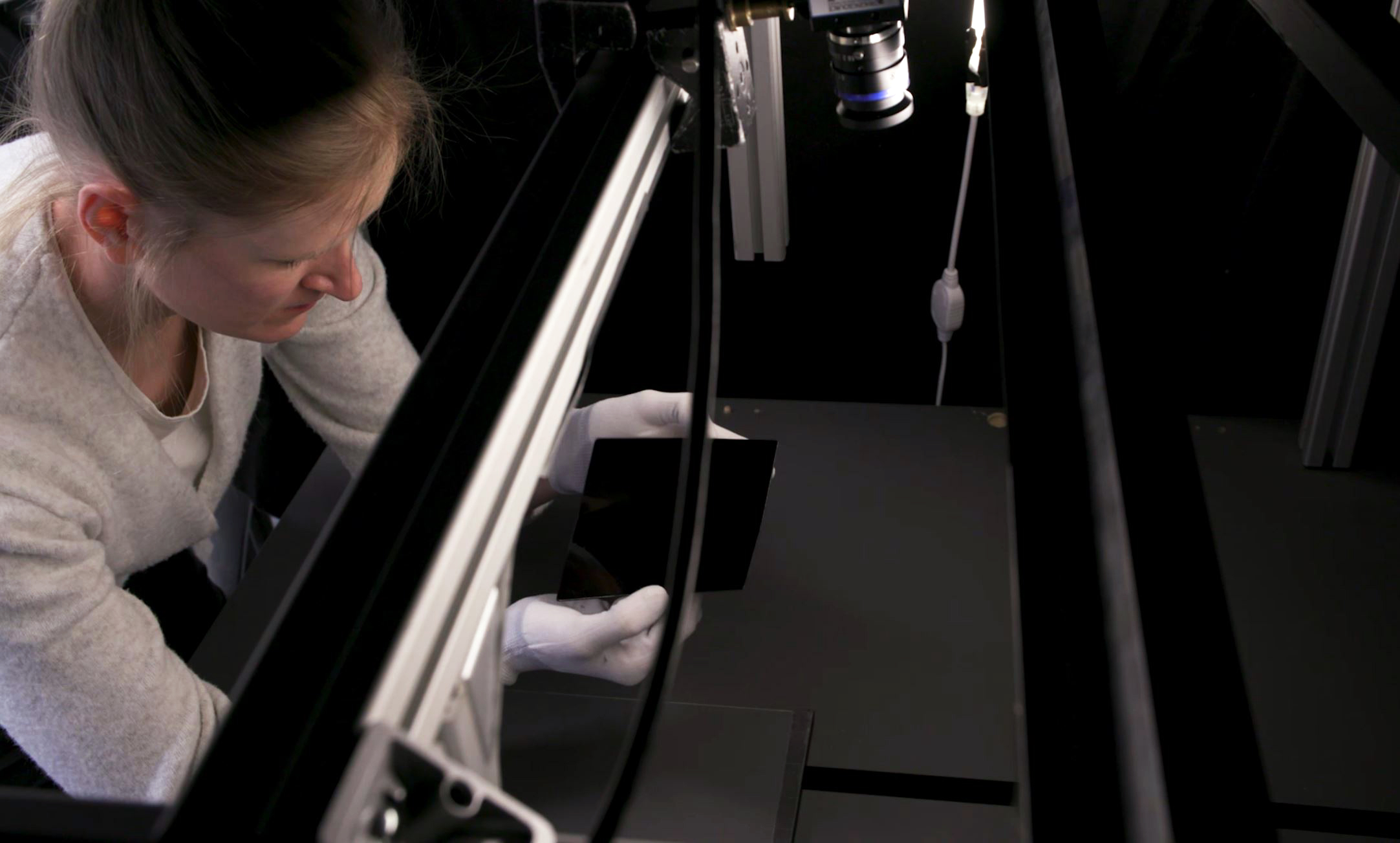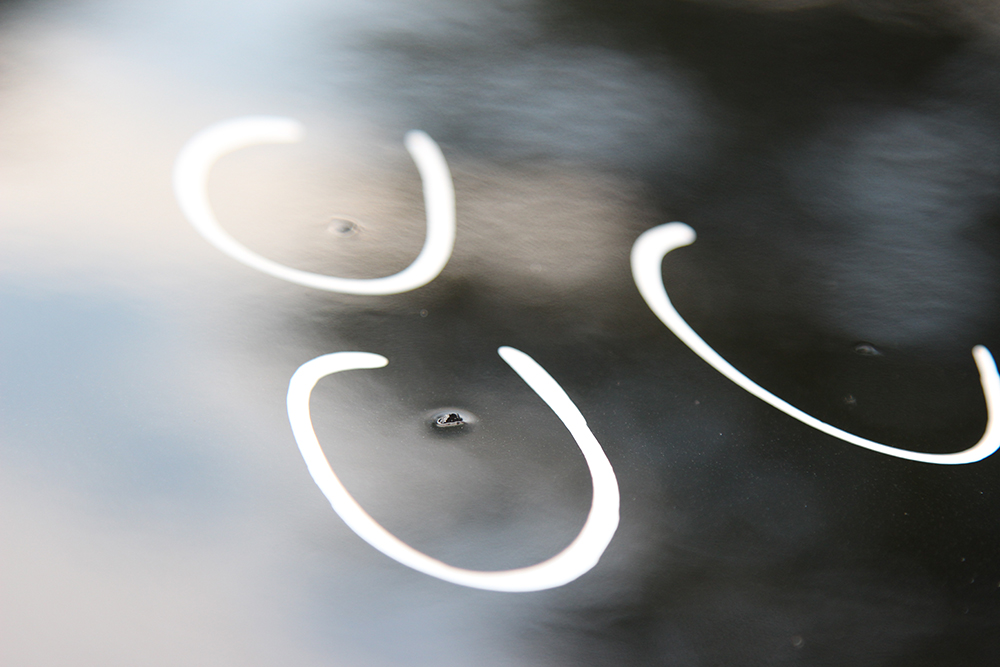Automated quality control of reflective surfaces



The automation of manual visual inspection of defects on component surfaces in industrial production has so far only been achieved by very complex solutions. These require high investments both in acquisition and maintenance and place high demands on the location (e.g., shielded rooms for robot arms). In addition, defects on highly reflective surfaces can only be detected by these systems with difficulty or not at all. The system developed by the Fraunhofer institutes IAIS and IPT, on the other hand, offers low hardware and maintenance costs, can be used flexibly, and can be retrofitted into existing production facilities. Among other things, the solution is capable of inspecting reflective surfaces such as painted components, even working under the influence of scattered light (e.g., ceiling lighting in a hall).
Classical image processing in combination with Artificial Intelligence
The special characteristic of our technology is the combination of classical image processing and Artificial Intelligence. The system uses the advantages from both worlds – fast, approximate algorithms from classical image processing and the powerful methods of Deep Learning. The classical image processing methods are used for data preprocessing. For the detection and classification of surface anomalies, we rely on Convolutional Neural Networks (CNNs). This enables the system to learn different defect features (scratches, dents, paint gradients, ...) and thus to distinguish and localize them.
Incorporating expert knowledge with Informed Machine Learning
A particular challenge in the application of Deep Learning in industrial production is the acquisition collection of annotated training data. For this purpose, we rely on Informed Machine Learning: by incorporating expert knowledge, the system is able to make the data-hungry neural networks feasible. The amount of training data and the annotation effort can be kept comparatively low. Due to the latest developments of our system, not only highly reflective but also diffusely reflective surfaces can be tested. Thus, the system can be used for a wide variety of test objects. Currently, defects of a size of 0.1mm on 1m component size can be detected. Industrial use is currently being tested in the project based on various use cases in cooperation with partners from production. The goal is to increase the technological maturity of the system.
Individual solutions for individual challenges
Is your company facing the challenge of automating and reliably implementing your quality control of reflective surfaces? We offer a cost-effective, flexible inspection system that is suitable for both highly and diffusely reflective surfaces. We look forward to getting in touch with you and working on a solution together.
Video: The intelligent quality control of reflective surfaces

Privacy warning
With the click on the play button an external video from www.youtube.com is loaded and started. Your data is possible transferred and stored to third party. Do not start the video if you disagree. Find more about the youtube privacy statement under the following link: https://policies.google.com/privacyThe video shows the intelligent quality control of reflective surfaces in action. Dr. Theresa Bick, one of the developers, also talks about the underlying components, the uncomplicated application possibilities and the advantages of the AI-based technology.
 Research Center Machine Learning
Research Center Machine Learning